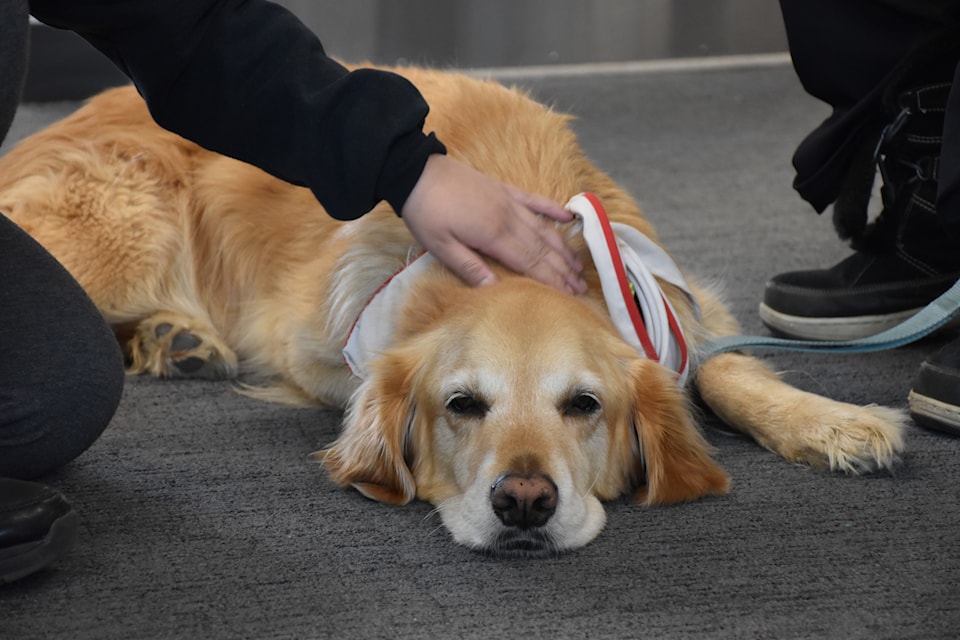For those students who could financially afford it, pets could help deal with mental health issues.
A 2024 report from CAMH revealed a concerning decline in overall mental health among Ontario students.
While drug use has dipped, 38 per cent of students report their mental health as fair or poor and 37 per cent say they have elevated stress levels. The study found 78 per cent use social media for more than three hours a day and 94 per cent use social media daily, a factor of anxiety in college students.
But other studies revealed that “interacting with a pet dog considerably reduces anxiety and feelings of sadness and improves happiness.”
Susan Aitken, a Registered Social Worker, incorporates animals into the therapeutic process to assist in her clients' healing. She said college can be exciting but it does also come with significant challenges.
"Many students experience high levels of stress, anxiety, and burnout as they navigate demanding academic schedules, social pressures, and personal responsibilities,” Aitken said. “As someone who works closely with individuals facing mental health struggles, I believe animals can play a powerful role in supporting students’ emotional well-being.”
She said she believes students who have a pet in their home could see unique benefits.
“A pet offers emotional stability during the transition to independent living, easing homesickness and providing continuity between home and campus life. Pets can act as emotional buffers, reducing loneliness and fostering resilience,” Aitken said.
Financial costs are not the only issue in the care of a living animal, it also requires care, which takes time.
“Pet ownership is not always practical for every student," Aitken said. "Managing the care of an animal requires time, emotional energy, and financial resources, which can be challenging given the demands of college life.”
Humber has a therapy dog that has been visiting campus since 2016 for those who do not have pets at home.
Some students have personally testified to the benefits that their pets have given them.
Julian Robertson, a University of Toronto student, moved to Toronto with their cat from Alberta.
“Spending time with my cat, Marble, has relieved an immense amount of stress," they said. "After moving across the country to a city where I know no one, having a familiar face at my apartment is deeply comforting.”
That’s not to say that there were no issues in moving to Toronto with a cat in tow. Robertson believes they are lucky to be in the financial situation to have a pet.
“Moving out to Toronto has proven difficult and having a cat with me has made it harder. I was unable to stay in dorms due to having a pet," they said. "Few apartments in the city are pet-friendly.
“When they are, they often only accept dogs," Robertson said. "I had to seek more expensive units that allow pets, which unfortunately has stretched my budget very thin.”
Robertson has been diagnosed with PTSD and autism and has found that a cat specifically has helped them feel safe and grounded.
“Sensory-wise, it is very calming to have something soft and heavy I can cradle and that can comfort me," they said. "It makes the world feel a bit less serious and frightening. I spent much of my teenage years in subsidized housing.
“We were forbidden by the property owners to own pets, but after a vote among residents, this policy changed and I procured a cat,” Robertson said. “The apartment I resided in at the time was ridden with cracks in the walls and was in a difficult area of town where I would have to occasionally contact the police due to violent occurrences outside.”
Toronto has guidelines and tips for adopting pets which are available online.
24Petonnect has adoption options on its website and licence adopted pets for a fee.
Dogs have a base adoption fee of $125 with an additional $60 for male dogs and $90 for females. Cats cost $75 regardless of sex.
Dogs can be licensed for $25 and cats for $15, all pets from 24Petconnect are spayed and neutered.
Experts, like Aitken, recommend their own set of tips, too.
She recommends adopting instead of buying to save on costs, seeking affordable veterinary care, buying food and treats in bulk when possible, making DIY toys from used items, grooming at home and maintaining preventative care to avoid costly vet visits and reminds owners that pets thrive on love and attention, so focus on free activities like walks and playtime.



